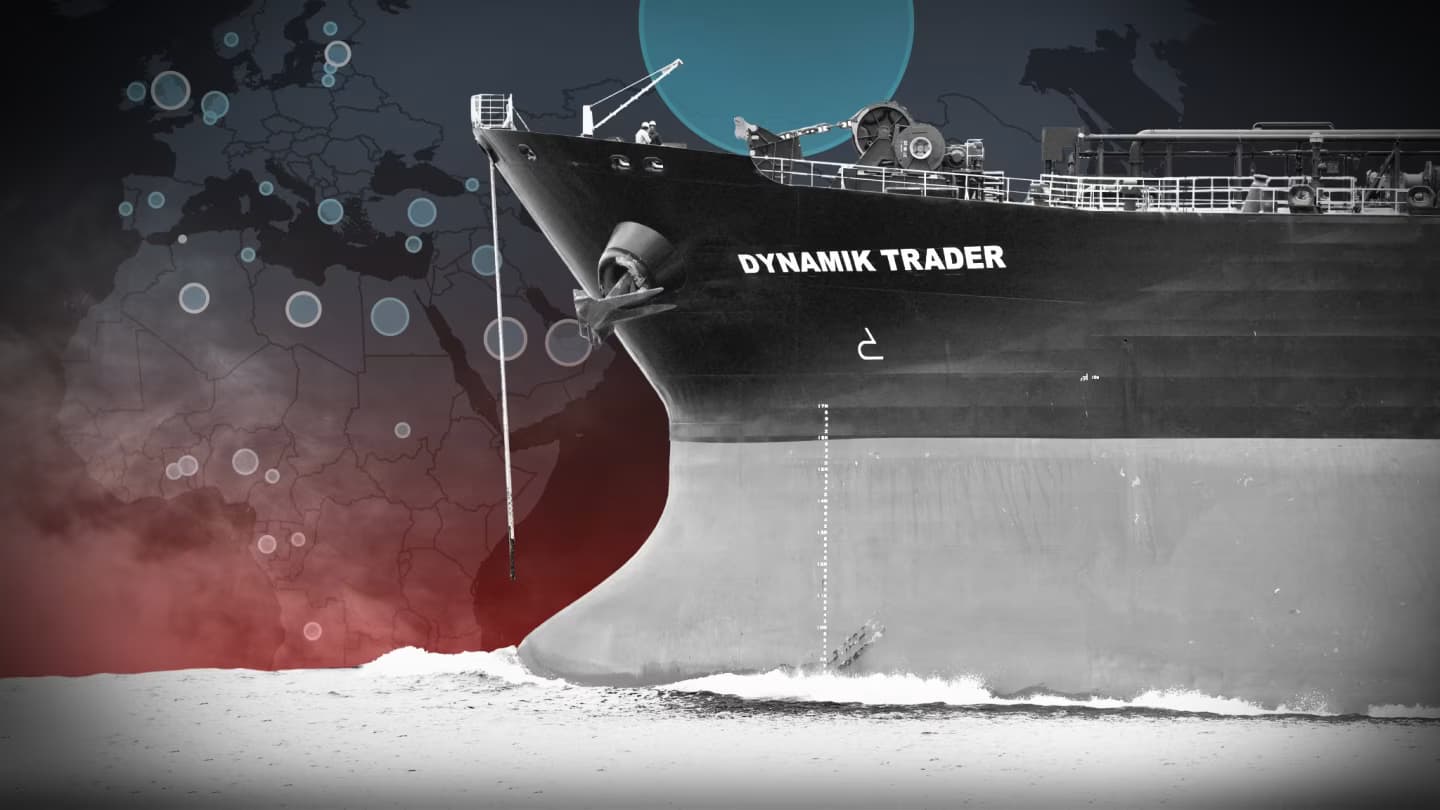We're loading the full news article for you. This includes the article content, images, author information, and related articles.
A clandestine network of aging, poorly insured tankers is helping Russia evade oil sanctions, creating major environmental risks and contributing to the global price volatility that keeps fuel costs high in Kenya and across East Africa.

Out on the world’s major shipping lanes, a dangerous game is unfolding. Hundreds of aging oil tankers, collectively known as Russia's "shadow fleet," are navigating international waters to bypass sanctions imposed after the full-scale invasion of Ukraine in February 2022. This fleet, estimated to number between 1,100 and 1,400 vessels by late 2023, allows Russia to continue exporting its most valuable commodity, oil, beyond the price cap set by the G7 nations and their allies. The G7 coalition, which includes the United States, European Union, and United Kingdom, implemented a price cap of US$60 per barrel on Russian seaborne crude oil in December 2022. The policy was designed to curtail Moscow's war revenues while preventing a global energy price shock.
While these shadow operations occur thousands of kilometers away, their impact is felt directly at the pump in Kenya. The existence of this parallel market introduces significant volatility and uncertainty into global oil prices. Although the shadow fleet ensures a steady supply of Russian oil to the market, its clandestine nature and the constant threat of stricter sanctions enforcement create price instability. This global turbulence directly affects the landed cost of petroleum products in Mombasa, a key determinant in the monthly price reviews by Kenya's Energy and Petroleum Regulatory Authority (EPRA). As of mid-November 2024, fuel prices in Kenya remained the highest in East Africa, with petrol retailing at KSh 180.66 per litre in Nairobi, compared to KSh 171 in Uganda and KSh 141.89 in Tanzania. The sanctions architecture, including potential secondary sanctions on buyers of Russian oil, adds another layer of complexity that can disrupt supply chains and elevate costs for import-dependent nations like Kenya.
Beyond the economic consequences, the shadow fleet represents a grave environmental threat. Many of these tankers are well past their typical scrapping age of 15-20 years, with some operating without proper inspections or maintenance. A significant number lack industry-standard Protection and Indemnity (P&I) insurance from reputable providers, which covers third-party liabilities like oil spills. Instead, they rely on obscure insurers, raising doubts about their ability to cover the immense costs of a potential environmental disaster. The Atlantic Council reported in January 2024 that the fleet has grown to an estimated 1,400 ships, all posing a considerable risk to the environment and other vessels. These ships often engage in risky practices like ship-to-ship transfers in open water and disabling their Automatic Identification Systems (AIS) to avoid detection, increasing the chances of collisions and spills. An accident in a critical waterway, such as the Indian Ocean shipping lanes vital to Kenya, could have catastrophic ecological and economic consequences.
The international community, led by the G7, continues to tighten enforcement against the shadow fleet. The United States has been particularly active, sanctioning hundreds of vessels and associated entities to increase the cost and difficulty of these illicit trades. However, the effectiveness of these measures is an ongoing challenge, as Russia adapts its strategies to maintain export flows, primarily to China and India. The African Union (AU) has expressed "extreme concern" over the conflict, calling for respect for Ukraine's territorial integrity and a ceasefire. However, the continent's response has been varied, with many nations, mindful of economic and historical ties, adopting a non-aligned stance. In a September 2022 interview, Kenyan President William Ruto indicated an openness to purchasing cheaper Russian fuel to ease the burden on consumers, highlighting the complex economic pressures facing African nations. This reflects a broader continental dilemma: balancing diplomatic principles and international law with the urgent need for affordable energy and commodities like fertilizer, for which Russia is a major global supplier.
The standoff between Russia and the West over oil sanctions is a complex geopolitical issue with far-reaching consequences. For Kenya, the primary impacts are economic, manifesting in the high cost of fuel that drives up inflation and the cost of living. The environmental risks posed by the aging, under-insured shadow fleet also present a latent threat to the nation's vital maritime resources. As long as the war in Ukraine continues, this clandestine fleet will remain a destabilizing factor in global energy markets and a significant risk to maritime safety, with Kenyans indirectly feeling the effects in their daily lives. FURTHER INVESTIGATION REQUIRED into specific shadow fleet movements in the Indian Ocean is needed to fully assess the direct risk to East Africa's coastline.
Keep the conversation in one place—threads here stay linked to the story and in the forums.
Sign in to start a discussion
Start a conversation about this story and keep it linked here.
Other hot threads
E-sports and Gaming Community in Kenya
Active 9 months ago
The Role of Technology in Modern Agriculture (AgriTech)
Active 9 months ago
Popular Recreational Activities Across Counties
Active 9 months ago
Investing in Youth Sports Development Programs
Active 9 months ago